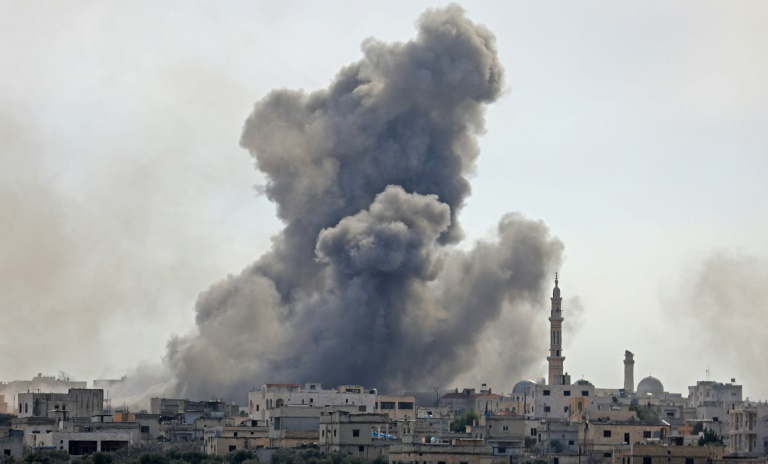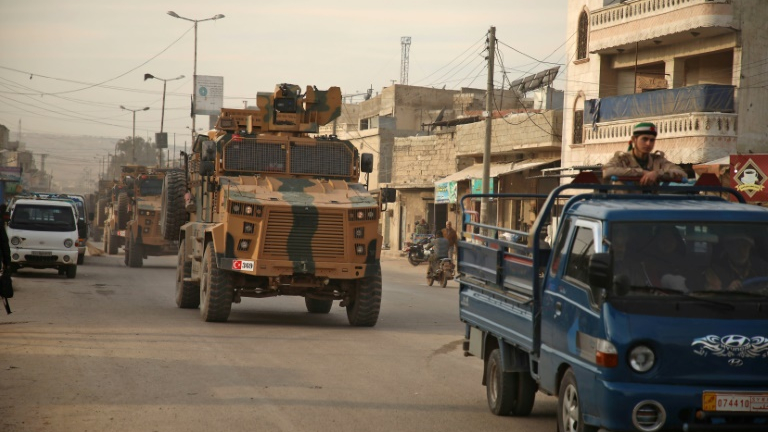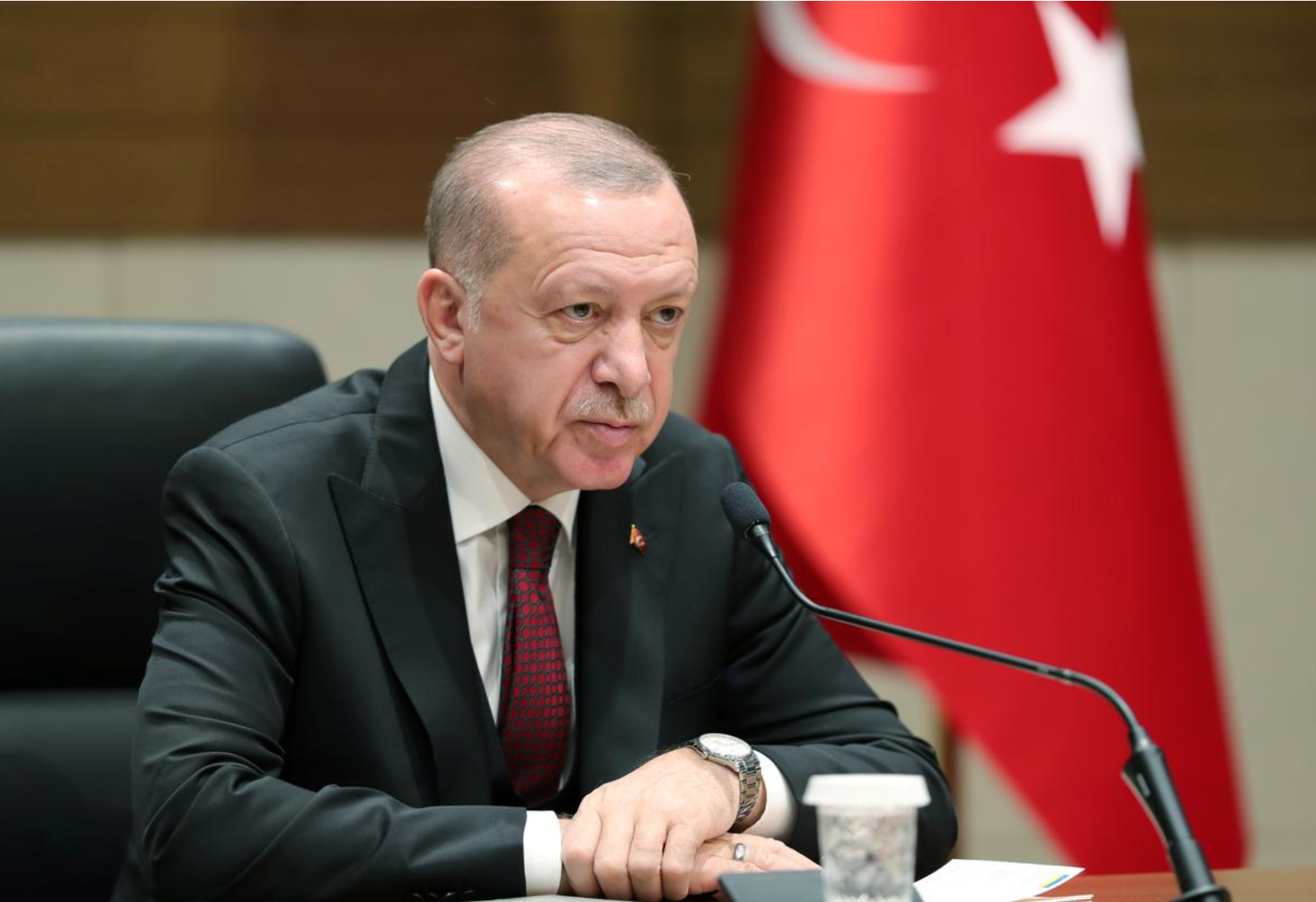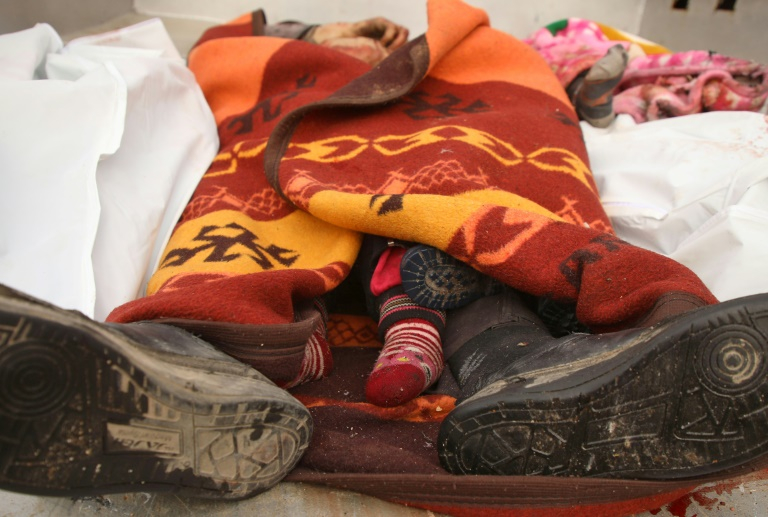
Smoke billows from the Syrian village of al-Nayrab in the northwestern Idlib province during attacks between Turkish and Syrian troops. /AFP Photo
Smoke billows from the Syrian village of al-Nayrab in the northwestern Idlib province during attacks between Turkish and Syrian troops. /AFP Photo
The United Nations Secretary-General Antonio Guterres has called for an immediate end to hostilities between Turkish and Syrian troops in northwest Syria, according to his spokesman Stephane Dujarric on Monday.
Turkish and Syrian troops traded fire in northwest Syria on Monday, with more than 23 reported dead. Russian air strikes also killed 14 civilians in the same area, according to the Syrian Observatory for Human Rights, a Britain-based war monitor.
Monday's tit-for-tat shelling between Turkish and Syrian forces over the Idlib region on Turkey's border was the deadliest after Turkey in recent days sent military vehicles, trucks and other reinforcements to the region in a challenge to Damascus and its Russian backers.

A Turkish military convoy heads for the south of Idlib province in northwest Syria. /AFP Photo
A Turkish military convoy heads for the south of Idlib province in northwest Syria. /AFP Photo
The overnight clash began with Syrian government shelling at Turkish positions in Idlib, hours after a Turkish military convoy of at least 240 vehicles entered northwest Syria, according to the Observatory. The Russian defense ministry said Ankara had failed to give prior warning of its troop movements.
The shelling killed seven Turkish soldiers and one civilian working for the Turkish military, and wounded 13 others, according to Turkish Defense Minister Hulusi Akar.
Turkey later responded to the attack with retaliatory operations included the use of F-16 fighter jets, hitting 54 targets in Idlib and 76 Syrian government soldiers being "neutralized."
Retaliatory Turkish rocket attacks killed 30 to 35 Syrian government troops, Turkey's President Recep Tayyip Erdogan said, which conflicts with Syria's state news agency SANA that said the Syrian army had not suffered any casualties.
The heaviest Syrian casualties were inflicted south of Saraqeb, a flashpoint in Idlib that Damascus has been trying to encircle since last week, the observatory said.

Turkish President Recep Tayyip Erdogan speaks during a news conference in Istanbul, Turkey, February 3, 2020. /Reuters Photo
Turkish President Recep Tayyip Erdogan speaks during a news conference in Istanbul, Turkey, February 3, 2020. /Reuters Photo
Erdogan called Monday for Russia to honor its pledges under a 2018 agreement after eight Turks were killed.
"I hope that everyone will assume their obligations under the Astana and Sochi agreements," Erdogan told a news conference in the Ukrainian capital Kiev, in an implicit reference to Russia. "It cannot continue like this and a response has been given. We will make them pay the necessary price and will continue to do so."
He was speaking on a visit to Ukraine, where he also warned Russia to stay out of Ankara's dealings with Damascus over the shelling, telling Moscow "not to stand in our way."
Last week, Erdogan accused Moscow of "not honoring" agreements made with Ankara and threatened to use military force if the situation in Idlib was "not returned to normal quickly."
Turkey, which already hosts more than 3.7 million Syrian refugees, fears a further influx of refugees fleeing violence in Idlib, saying it would not be able to handle a fresh flow of displaced people.

Bodies of an adult and a child killed in an air strike in Syria's rebel-held northern Aleppo province. /AFP Photo
Bodies of an adult and a child killed in an air strike in Syria's rebel-held northern Aleppo province. /AFP Photo
Idlib is home to some three million people. The UN said last week that about 500,000 people had fled their homes since December 1. Another 400,000 people were displaced between April and August.
The World Health Organization said Monday that the violence had forced 53 medical facilities in northwest Syria to close in January and warned of "critical health threats" to fleeing civilians.
The WHO recorded two direct attacks on health facilities in northwest Syria in January, in which 10 people died and 30 were injured.
"What this means to Syrian families on the run is further limited access to basic health care, an increasing lack of basic medicine and less protection against communicable diseases," the UN agency said in a statement.
The current military escalation in the region began in April 2019, but the situation has deteriorated in the past two months. Syrian President Bashar al-Assad's forces, backed by Russia, have made large advances in Idlib and keeps pressing ahead.
Military experts believe Assad's survival was assured but there are still hard battles ahead as swathes of land in and around Idlib province are still controlled by a jihadist group led by Syria's former Al-Qaeda affiliate.
(With input from agencies)